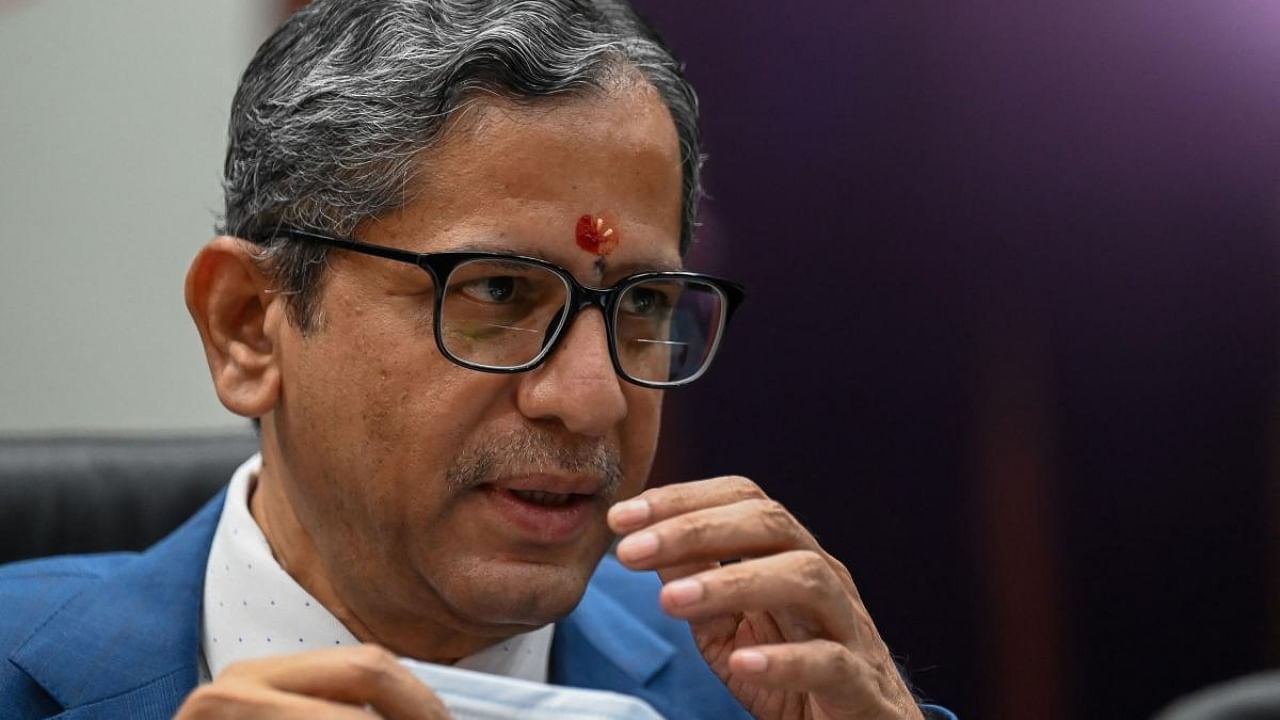
Chief Justice of India N V Ramana on Monday said the fundamental duties are not merely pedantic or technical, instead they were incorporated as the key to social transformation, as the framers of the Constitution imagined a nation, where citizens are aware, alert and able to make the right decisions.
He was speaking at a function organised by the Supreme Court Bar Association (SCBA) at SC lawn to mark the 76th anniversary of India’s independence day
“Our Constitution is the fundamental document which regulates the relationship between the citizens and the government. While it has granted us inalienable rights, it places upon us certain fundamental duties. The fundamental duties are not merely pedantic or technical. They were incorporated as the key to social transformation. Our framers imagined a nation, where citizens are aware, alert and able to make the right decisions," he said.
Of late, statements from Prime Minister Narendra Modi, Vice President Venkaiah Naidu, former CJIs Ranjan Gogoi and S A Bobde have been made highlighting importance of fundamental duties for citizens.
Also Read: 'Don't dare to cross Lakshman Rekha': Law Minister Kiren Rijiju on being asked about pending cases
While speaking on the occasion, Law Minister Kiran Rijiju said he acted as a bridge between the executive and the judiciary and never dared to cross the 'Lakshman Rekha', even though he is often asked about pendency of cases and delay in delivery of justice.
He said many people think judiciary, executive and legislature work very differently, actually they work closely and because of the sensitivity and understanding to some extent, "we seem to work separately".
In his speech, the CJI said under the constitutional framework, each organ has been given a unique obligation and the notion that justice is only the responsibility of the court is dispelled by Article 38 of the Indian Constitution which mandates the state to secure justice: social, economic and political.
“Every deed of each organ of the state has to be in the spirit of the Constitution. I must note that all the three organs of the State, i.e., the executive, legislature and the judiciary, are equal repositories of Constitutional trust," said the outgoing CJI said, while emphasising the need for the citizens to understand the Constitution and its organs.
Justice Ramana is set to demit office as the CJI on August 26.
